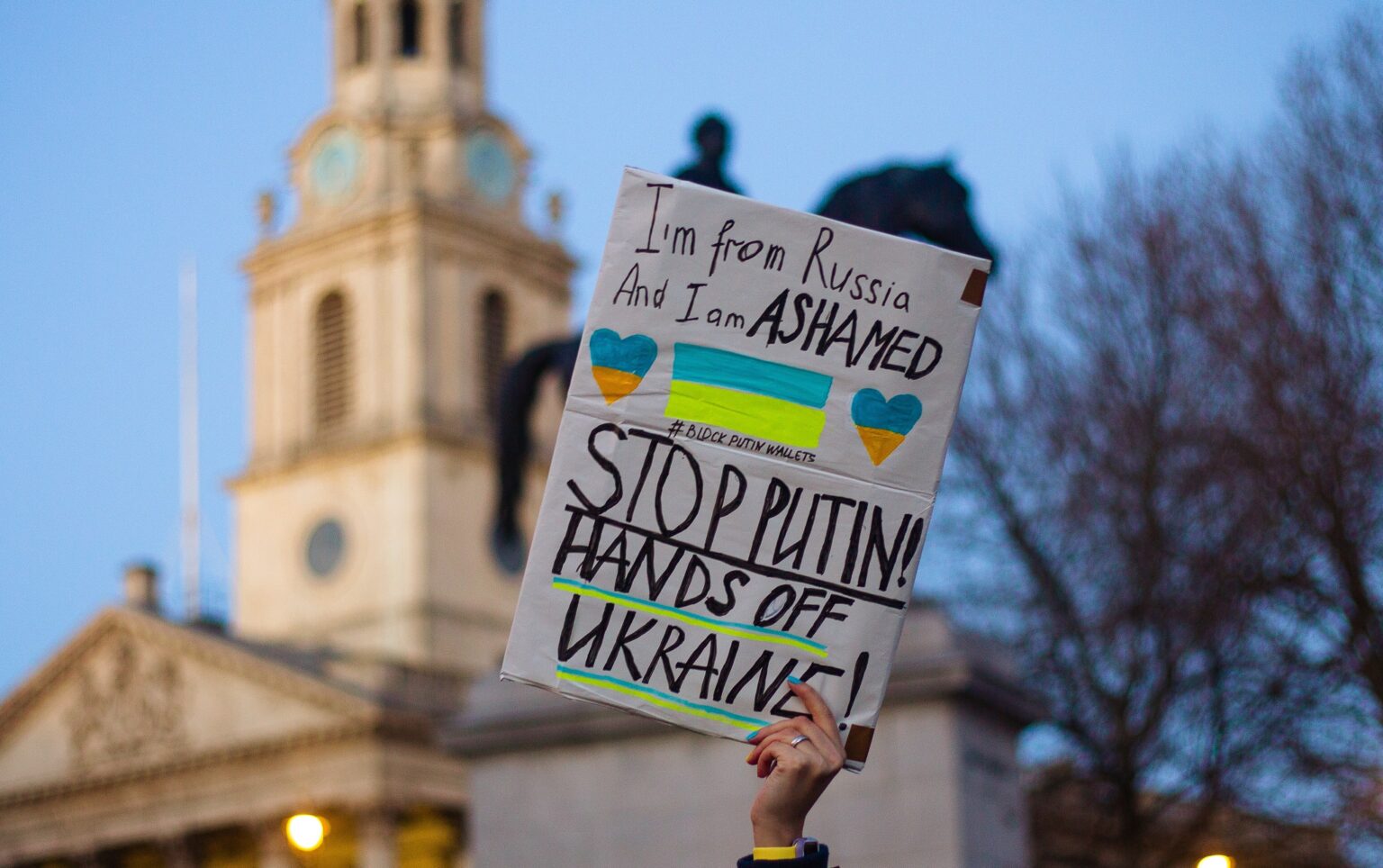One year after Russia’s February 24, 2022 invasion of Ukraine, more than 6,000 Russians who’ve protested the war have been charged with administrative violations, and 520 Russians have been sentenced to prison, some facing years behind bars.
That’s according to Political Prisoners Support, an independent group monitoring the Kremlin’s crackdown against dissent over the past year.
One week after Russia invaded, Russian President Vladimir Putin had signed a law making the sharing of what the Kremlin deemed as “fake news” a crime. Russia’s definition of fake news includes any information about the war that’s different from what the Ministry of Defense lays out in its news releases.
Even calling the war a “war” is a crime in Russia—one that Putin himself has violated. In December, a Russian politician filed a legal challenge against Putin, asking prosecutors to investigate the Russian President over his use of the word “war” when speaking to reporters rather than the official designation of “special military operation” to describe the invasion of Ukraine.
The 2022 “fake news” law was just the latest—and most aggressive—variation in a series of similar restrictions on Russian speech. A 2019 version of the “fake news” law, for instance, carried only a 15-day jail term while the 2022 version carries a penalty of up to 15 years in prison.
Further, prosecutors and judges don’t consider any presumption of innocence. The implementation of new laws ensures the only accepted opinion about the war is that of the Russian Ministry of Defense, according to Sergei Davides, the head of the Political Prisoners Support Program and a member of the board at Memorial Human Rights Centre in Moscow.
He finds the crackdown he’s currently seeing in Russia particularly alarming. “This is the first time we see people being prosecuted purely for their negative opinion,” Davides told USA Today.
But despite the crackdown, the protests in Russia against its invasion of Ukraine have not stopped. Even on Friday to mark one full year of warfare antiwar memorials sprung up in support of Ukraine in Moscow and elsewhere.
People in Russia’s capital city on Friday brought flowers to a statue of a famed Ukrainian writer, Lesya Ukrainka, which became a makeshift memorial to Ukrainian victims of Russia’s invasion following a missile strike on a residential building in Dnipro in January that killed at least 46 people.
In St. Petersburg on Friday, police detained several people who dared to lay flowers near the statue of a 19th century Ukrainian poet, Taras Shevchenko.
And in Kazan, a regional capital on the Volga River, people brought flowers, toys and pictures of Ukrainian cities destroyed by the Russian army to a monument commemorating victims of political repression.
On Friday in Ivanovo, about 200 miles northeast of Moscow, activists put up a banner on the side of a highway overpass that read “Enough of this bloody ‘battle for peace.’”
The Kremlin on Friday, however, appeared to have preferred that Russians not dwell too much on the “anniversary” of its “special military operation.” Amid claims from Ukraine that some 824 Russian soldiers have been dying per day in February alone, Russian state media on February 24 was reportedly focused mainly on international news.


